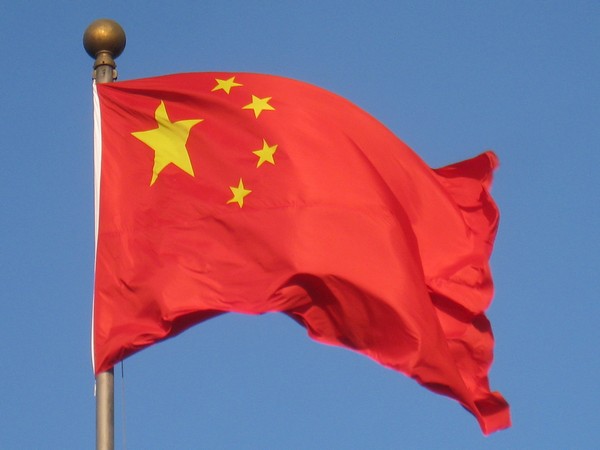In a move that has sent tremors through the nation, the Georgian government has made the controversial decision to award the Anaklia port project to China Communications Construction Company Limited (CCCC), a Chinese state-owned enterprise with a notorious history of corruption scandals. This decision has raised eyebrows and sparked concerns among civil society organizations, with Transparency International (TI) Georgia leading the charge in sounding the alarm bells over the potential ramifications for the country’s foreign policy direction and the heightened risk of importing corruption into Georgia.
The Anaklia port project, a deep-sea port envisioned as a pivotal component of Georgia’s international transportation infrastructure, carries significant geopolitical and economic weight. The government’s choice to partner with CCCC, a company that has been sanctioned by the U.S. Treasury Department’s Office of Foreign Assets Control (OFAC) since June 2021 due to its ties to China’s military-industrial complex, coupled with the recent passage of a contentious “Russian law,” indicates a disquieting shift in Georgian foreign policy, as highlighted by TI Georgia.
CCCC’s reputation is tarnished by a litany of corruption allegations and scandals that span multiple countries, including the Philippines, Equatorial Guinea, Ecuador, Bangladesh, and Malaysia. The company has faced an array of bans, bribery charges, and project suspensions, casting serious doubts on its suitability as a partner for a project of such critical importance to Georgia’s future.
The U.S. sanctions imposed on CCCC, while not entirely prohibiting financial transactions with the company, do restrict its ability to procure American-made components without prior authorization. This complication adds an additional layer of uncertainty to the project’s trajectory and raises questions about the wisdom of engaging with a company that has drawn the ire of the international community.
The U.S. Embassy in Georgia has, in the past, openly criticized CCCC’s track record in developing countries, pointing to a range of issues that include substandard construction quality, violations of labor rights, environmental damage, and the saddling of host countries with unsustainable debt burdens. These concerns were echoed by the U.S. State Department on June 1, underlining the necessity of safeguarding the security and sovereignty of Georgia and its Euro-Atlantic allies.
Georgia’s decision to forge ahead with CCCC is particularly disconcerting when viewed through the lens of China’s Belt and Road Initiative (BRI), a grand plan that has been marred by a string of unsustainable projects and failures across various countries. The BRI, touted as a transformative endeavor to connect Asia, Europe, and Africa through a sprawling network of infrastructure projects, has been dogged by criticism over its opaque nature, disregard for environmental and social consequences, and the crushing debt burdens it imposes on participating nations.
From the cautionary tale of Sri Lanka’s Hambantota port, which became a symbol of the BRI’s pitfalls when the country found itself unable to repay its loans and was compelled to cede control of the port to a Chinese state-owned company on a 99-year lease, to the stalled projects and mounting debt in countries like Pakistan, the BRI’s track record is far from inspiring confidence.
TI Georgia’s warning that partnering with a company like CCCC, given its well-documented history of corruption scandals, amplifies the risk of importing corruption into Georgia, especially against the backdrop of the current government’s ongoing crackdown on non-governmental organizations. The vital role played by the non-governmental sector in monitoring and preventing corruption risks cannot be overstated, and the suppression of these watchdogs only serves to compound the concerns surrounding the Anaklia port project.
As Georgia navigates the complex terrain of its foreign policy choices and economic development, it is imperative for the government to prioritize transparency, accountability, and the long-term interests of the country and its citizens. Engaging with companies and initiatives that have a track record of corruption, unsustainable practices, and geopolitical tensions may offer short-term gains, but ultimately undermines Georgia’s sovereignty and democratic progress.
The international community, particularly Georgia’s Euro-Atlantic partners, must remain vigilant and steadfast in their support for efforts to promote good governance, combat corruption, and ensure sustainable development in the region. Only by upholding these principles can Georgia chart a course towards a future that is not beholden to the whims of opaque and controversial deals with companies like CCCC.
The Georgian government must also take heed of the concerns raised by civil society organizations and reconsider its decision to award the Anaklia port project to CCCC. The potential risks associated with this partnership, both in terms of corruption and geopolitical entanglements, far outweigh any perceived benefits. Instead, Georgia should seek to engage with partners that have a proven track record of transparency, sustainability, and respect for the rule of law.
The government must take steps to create an enabling environment for civil society organizations to operate freely and without fear of retribution. These organizations play a crucial role in holding those in power accountable and ensuring that the interests of the Georgian people are protected. By suppressing their voices, the government risks creating a climate of impunity that could have far-reaching consequences for the country’s future.
Georgia’s decision to award the Anaklia port project to CCCC is a perilous gamble that could have serious ramifications for the country’s foreign policy direction, economic development, and democratic progress. The international community must stand in solidarity with Georgian civil society organizations in their efforts to promote transparency, combat corruption, and ensure sustainable development. Only by working together can we help Georgia navigate these troubled waters and emerge stronger, more resilient, and more committed to the principles of good governance and the rule of law.

